I often receive questions from chess players of various levels on which are the best books to study chess. The theme is so important that led me to record an Online Lecture exclusively on the best chess books ever written.
At the time I wrote a simple article with the list of those I considered the seven best books in the history of chess. I decided to re-edit the article, including six works which in my opinion are the most appropriate to help his training.
Chess is a subject in which l lot has been written and obviously a list of the best works is very personal. My list actually represents the books I read and that helped to shape my personality as a player. The order in which the books appear in this article is random and does not reflect a ‘ranking’. Choosing the best is already very difficult, let alone put them in order of importance.
Best Chess Books:
1. Collection School of Chess Excellence (Dvoretsky)
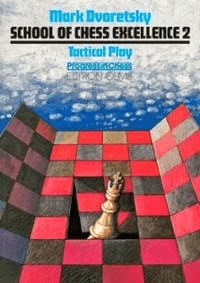
Excellent collection, composed of 5 books, aimed at advanced players (above 2300 FIDE rating). My favorites are volumes 1 (about endgame play – it contains spectacular positions that showed me, when I studied as a teenager the old version of the book, how chess can be complex) and 2 (tactics, including my favorite position: Tal – Portisch). Some positions can lead even grandmasters to tears, such the degree of difficulty. But the road to mastery is hard!
2. Yusupov Collection (Build / Boost / Chess Evolution)
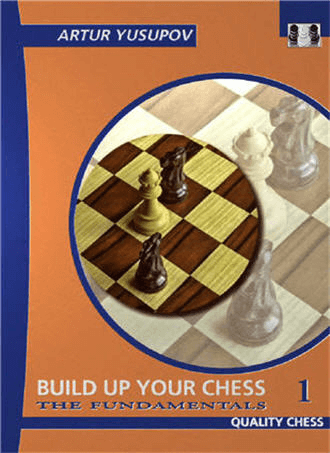
In my opinion this Yusupov series revolutionized the study of chess players from basic to intermediate levels. It addresses all important issues for chess development and places emphasis on the most important: decision-making. The theoretical exposition is always short and the reader is asked to solve a series of exercises. All books from this series are recommended! I have three in my library and I can say that many positions are interesting even to grandmaster level.
3. My 60 Most Memorable Games (Bobby Fischer)
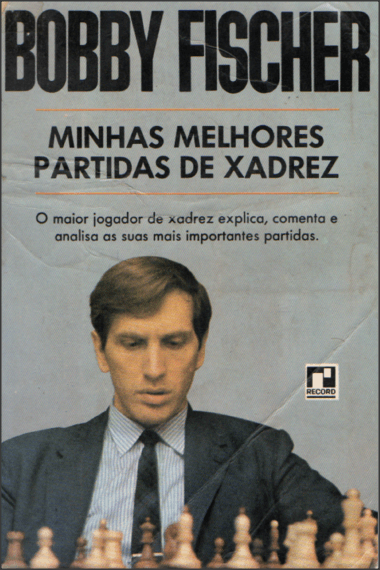
Classic of classics. I’m lucky to have a Portuguese version in my library. In addition to been written by one of the best chess players of all time, the book has an extremely honest selection of games – both losses and draws are included. It is interesting to compare the analysis of Fischer, made in the late 60’s, with powerful modern analysis engines. Or, better yet, compare Bobby’s analysis with Kasparov’s, published in Volume 4 of the “Great Predecessors” series.
4. Candidates Tournament – Zurich 53 (Bronstein)
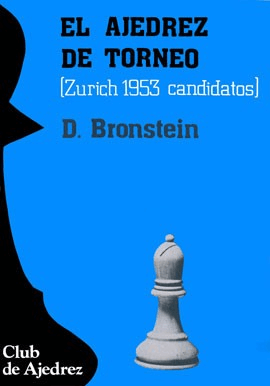
The famous book of the 1953 Candidates Tournament, won by Smyslov, has analysis of all games and is a fantastic way to improve our understanding of the game. Comments are extremely didactic, with many words and few variations. This is the favorite book of many of the best chess players in the world. Great for those moments when we want to leap through a few games without much “stress”.
5. Secrets of Grandmaster Play (Nunn)
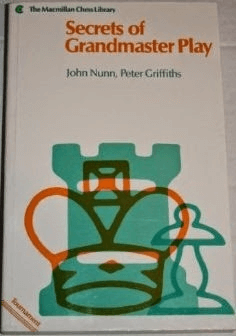
A not so well known book but which greatly helped me improve my understanding and calculation. At the time of writing British GM John Nunn was the best chess author. Recommended to advanced players, especially those who want to improve their play with the initiative. I have great memories of several afternoons studying Nunn’s games. My favorites: Nunn – Miles and Polugaevsky – Nunn.
6. Grandmaster Preparation (Polugaevsky)
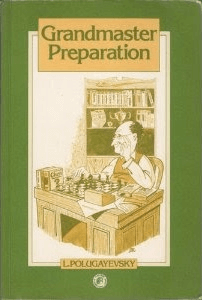
This and the next book are my favorites on this list. They are more than chess books. They are declarations of love for chess, testimonials of people who have dedicated their lives to the 64 squares. The chapter “Birth of a Variation,” in which “Poluga” recounts his countless hours of analysis in the Najdorf variation that bears his name, can bring us to tears. Especially recommended reading before playing a tournament as a way to motivate to the “hard work” necessary to prepare for the games.
7. The Life and Games of Mikhail Tal (Tal)
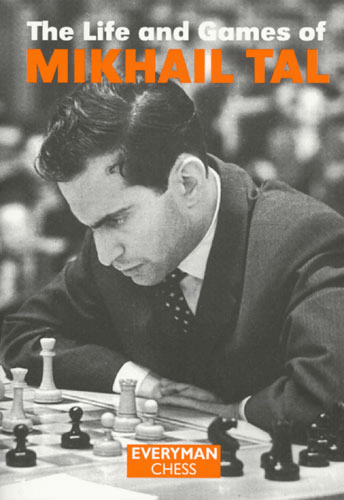
Tal was a genius, everyone knows. But that he was the author who used the best words to describe his career – this may still be unknown to many people. This work is chess book, literature, history, suffering, love of life, science and art. And also a great source of inspiration, coming from one of the brightest minds who has lived through this world. We can only regret that the book ends in the mid-70s – “Misha” also created many masterpieces later. I also recommend reading excerpts of the book before playing a tournament as a way of inspiration.
8. Endgame Manual (Dvoretsky)
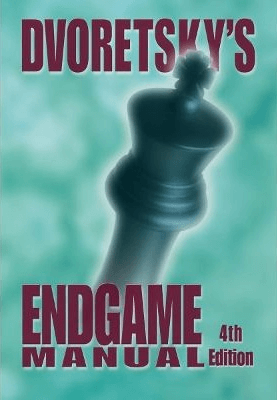
This book is, in my opinion, the best book on endgame theory ever written, since it contains nearly all the necessary knowledge on the subject. It is a rather heavy work, like a compendium, which can be visited for many years. The chess player who studies this manual with full concentration will have all the necessary knowledge on endgame theory, although obviously it is not a bad idea to work on other books as well – John Nunn and Karsten Muller, to name only two, have written great books.
9. The Test of Time (Kasparov)
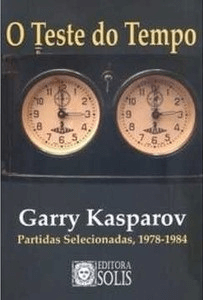
The test of time is a book that shows the rise of young Garry Kasparov until winning the Candidates Cycle, as the story ends just before the match against Karpov.
In the book, we find the dreams that motivated Kasparov from the beginning of his career and we can get an idea of the aggressive and energetic style of play he has always shown, as well as the tireless work it took to reach the top.
A curiosity: the preface to the Brazilian edition of this book was written by the author of this article.
10. Lessons With a Grandmaster (Gulko/Sneed)
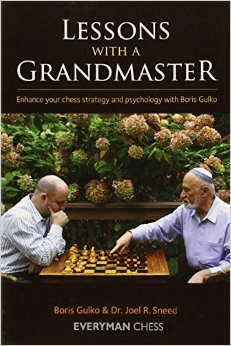
This is a book that I never cease to praise! I even wrote a separate review on ly old blog about it.
This work is distinguished by its original format as the book depicts a conversation between a player of about 2100 rating (Joel Sneed) and a GM with a deep understanding of the game (Boris Gulko), in which they talk about the decision-making process of a grandmaster, showing where it differs from the process of weaker chess player.
The teaching used in this work is very similar to the philosophy of training that I develop with my students and many of Gulko advices (take more concrete decisions, pay attention to the opponent’s resources, look for the “essence of the position”) are ideas I already advocated even before knowing the book.
The work also contains many diagrams as exercises with the indication of the level of difficulty on each of them, which is another of its great attractions.
For players who want to improve their positional play this is a great book. Examples on the theme “prophylaxis” are spectacular.
11. Endgame Strategy (Shereshevsky)
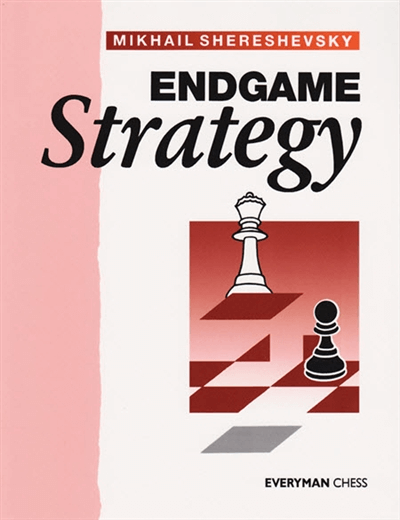
An essential book to improve our endgame technique – not to be confused with endgame theory. Technical positions are those with few pieces, but which are not theoretical – we do not need not need to know any of them from memory, but we should understand their principles.
The main plus of this book is that it shows the necessary attitudes to improve your technique, such as “do not to rush”, “play on both flanks”, “take advantage of the bishops pair” and so on. The work had a profound effect on my game – to this day I consider technical play my strength in chess.
12. Think Like a Grandmaster (Kotov)
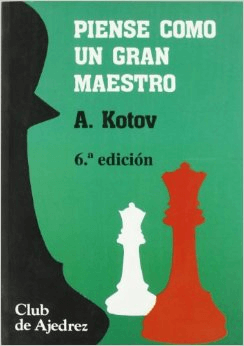
The revolutionary chapter on “Candidate Moves” is worth the whole book. Kotov demonstrates the method that led him from candidate master to one of the world’s leading players, basically improving his calculation skills. More important than the positions and analysis in the book (which need a thorough review with the computer), are the ideas: calculation as the greatest weakness of most chess players and the willingness to work hard to improve. The “analysis trees” are also funny – I remember studying this concept as a child and trying to draw the tree generated by my calculations.
13. My Great Predecessors (Kasparov)
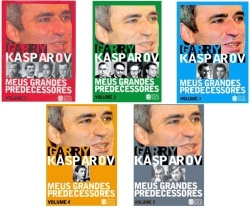
Indispensable collection for chess players of all levels. Advanced players will find in the analysis of Kasparov + Computer great material to train calculation. Chess players with candidate master strength will benefit from the study of chess evolution. In addition, beginners will know a bit more about the history of the great champions. My favorite is Volume 4, in which Kasparov analyzes the legacy of the greatest chess player of all time (in my opinion), Bobby Fischer.
Now that you know my list of the best chess books ever written and how each of them can help in your training, it is time to have fun with them. Good reading and good studies!
Download Now Our Free E-Book!
Follow as in the social media!

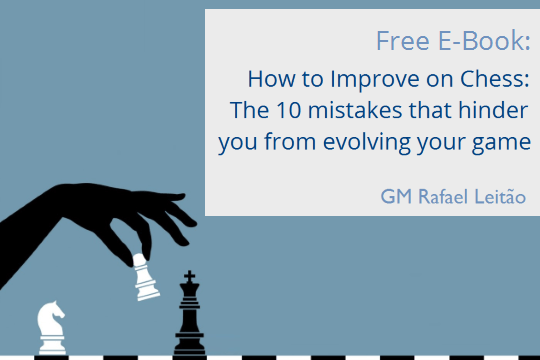



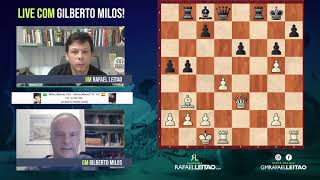
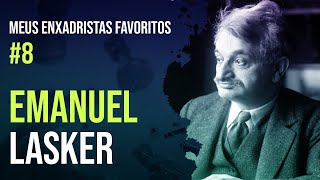

Great list of books. Just one correction: Gulko's co-author is Joel Sneed (not Snowden) and his rating is 1900 (not 2100).
Thanks for the correction, Steve.
Great white-up! But still: What makes a Chess book a great Chess book? The book that boosts Carlsen's raring five points or the book that helps legions of patzers boost their ratings 50+ points? "Logical Chess -move by move" deserves a honorary mention.
Thanks! I haven't studied the book you suggest, so I can't comment on its merits :)
Can't believe Test Of Time is not given more love. Alekhines book on his best games would be an honorable mention.
I agree that both are great books. I studied the book on Alekhine's games as a child and The Test Of Time as a teenager. As a curiosity, I wrote the Preface of the portuguese edition of The Test Of Time (O Teste do Tempo).
Ce sont des livres pour joueur de déjà bon niveau et voulant accéder à la compétition ! Mais on ne parle pas des bons livres d'initiation qu'on pourrait conseiller à toute personne désirant se mettre au noble jeu ! Là aussi il y en a des bons et des mauvais ! Mes préférés ont été "Les échecs" par Camil Seneca et "le bréviaire des échecs" de Tartakover ! je m'en souviens comme d'un enchantement, ils m'ont donné le goût du jeu, même si je n'ai jamais dépassé le niveau de joueur de club...
"Tratado General de Ajedrez" de Roberto Grau est aussi tout simplement fantastique. Grau possédait une plume claire et élaborée, et ses 4 tomes couvrent les bases du jeu et les tactiques jusqu'à la stratégie un peu plus avancée.
Great list...but some of the books would only be accessible by expert level player. I think it is fair to say you would need to be at least 1800 for all of them...or maybe a very motivated 1600.
I would be curious to hear your selection for weaker players... beginners as well as sub 1500.
Thanks for your suggestion. Maybe it's time for me to write this article. And you are right, these books are for advanced players.
No 'My System or 'The search for chess perfection'......dunno about that ;)
I understand your disappointment. But I'm just not a big fan of this book :)
Thank you Rafael
Thank you very much Rafael.
An excellent article.
Which book would you like to have with you if you were marooned on an island?
Hard to say...I guess Bobby's 60 Memorable Games...
Missing "My System" is a huge flaw in this list. I would also add "The art of attack in chess" by V.Vukovic.
Lists are personal. I don't like My System and I would never insert it in a best chess book's list. Actually I think My System is quite a bad book.
why is My System a bad book?
School of chess exellence is 4 volume work
This is chess educational, and thank very much.
Great list. I definitely think Applying Logic in Chess by IM Kislik deserves a spot on the list, the best-selling chess book released in 2018. I also think Chess for Zebras is spectacular.
I know that most of your choice are really good books, but seems theres a lot more to be mention as a great books..i think it is up to the reader how he feels about the book, usually the first book that we used is the one that have a great impact.! but still your choices give good insight and tips. Thanks !